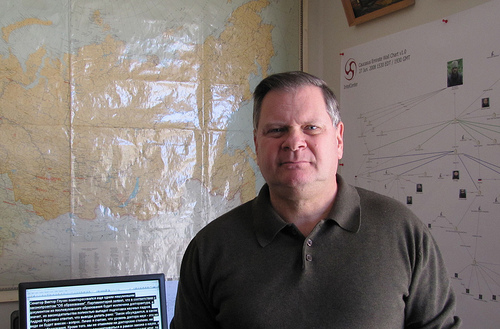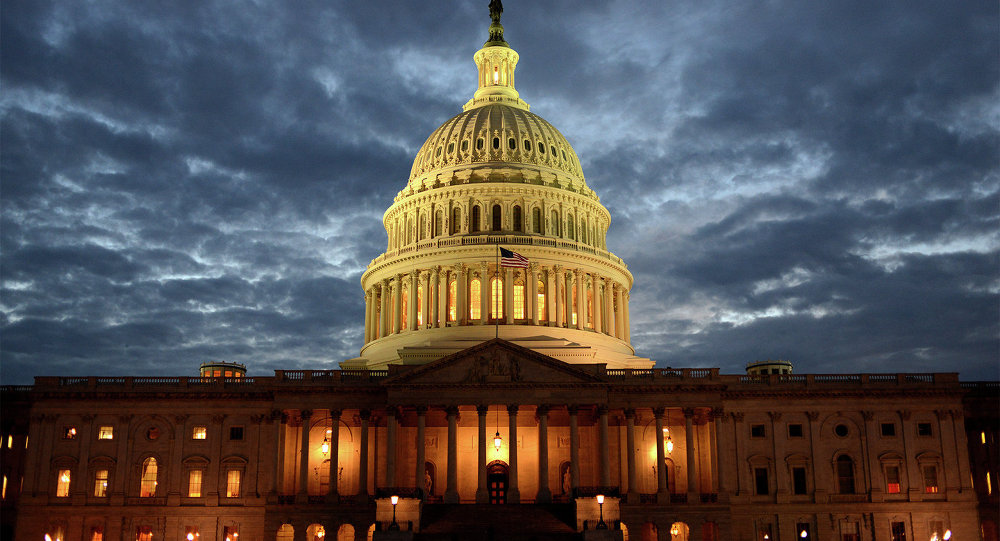
Gilbert Doctorow, Ph.D.
Gilbert Doctorow is the European Coordinator of the American Committee for East West Accord, Ltd. Gilbert Doctorow is a Research Fellow of the American University in Moscow
The slaying of Boris Nemtsov yesterday was a contract killing of great political moment carried out by professionals who had done their research of the location very thoroughly to ensure their own invisibility to surveillance cameras and a magnificent background of the Kremlin for suggestive journalism. And so the notion of a provocation remains uppermost. Read on…
Unlike a great many commentators appearing in alternative media, I generally avoid writing ‘on the fly’ about the day’s number one news item, However, today I will break with that practice and comment on the sensational murder yesterday of Russian opposition politician Boris Nemtsov in the center of Moscow.
I do this firstly to share with readers my personal impressions of a bigger than life figure whom I saw up close, once at an Economic Forum in London in the 1990’s when he still held the office of Vice Premier of the Russian Federation, and a second time in New York in 2010 when he acknowledged to his audience in a Columbia University lecture hall that all of the titles attributed to him by the moderator of his talk had to be preceded by "former.” And yet, even then, he was still a newsmaker, a man on whom the Obama administration placed its bets for overturning Vladimir Putin.The man who was gunned down yesterday was "former” in the full sense of the word, a spent force at age 55. And this fact must be borne in mind so long as the search for his murderers goes on and speculation on the motives of the murder is rife.
That he was a spent force became patently clear in the stormy period of street protests culminating in the Bolotnaya Square demonstration against alleged electoral fraud in the Duma elections of December 2011. A new "non-systemic” opposition came into being denying those who had served the central power for the sake of ramming through their Liberal reform agenda, as Nemtsov had done. A new generation under the leadership of blogger Alexander Navalny used the new force of social networking and achieved mass audiences of activists that put to shame the discredited Liberals like Nemtsov with their paltry public support.
In the spring of 2012 the attempts of old and new opposition leaders to run a steering committee and coordinate a ‘big tent’ approach to overturning the ‘Putin regime’ failed just as all previous attempts to coordinate of the strands of opposition had failed. These movements all foundered on the overweening personal ambition of the leaders compounded by traditional Russian quarrelsomeness. Nemtsov and his erstwhile partners in the systemic opposition like Vladimir Ryzhkov and Vladimir Milov could not hold together for very long; their alliances with the non-systemic opposition of men twenty years their juniors were still more transient.
The heading on the print ready obituary article put up on the front page ofThe New York Timesthis morning made it clear where the editors, if not the journalist who wrote the article, want to point the reader’s attention: "Critic of Putin Is Fatally Shot in Central Moscow.”TheFinancial Timeswas more cautious in allocating a title to its slide show featured on page one: "Russian reformer dies murdered” and just below, in a cascade of supporting articles, we read "Russian opposition leader Nemtsov shot dead.”We may be sure that in the Western media at large, the man who was killed is identified first not as a reformer, not as an opposition leader but precisely as a "critic of Putin.”
Boris Nemtsov was indeed a critic of Putin and a vicious critic at that. But the logic of this fact entering the first lines of the news coverage of a murder without identified perpetrators or motives is that it points us in the very direction that the Kremlin fears most: to lay the death at the door of Vladimir Putin as if his interests were served by the removal of an opponent. In Russian parlance, this is aprovokatsiyaintended to build on the long-established denigration of Putin in the West and serve the cause of the War Party in Washington, London and several other capitals. Putin, the Thug is the epithet assigned to the leader of the Russian Federation by America’s political elite including John Boehner Speaker of the House.But Putin the Murderer was the allegation that came out of the deaths of journalist Anna Politkovskaya and former KGB operative, Berezovsky house-boy Alexander Litvinenko, both of whom were also spent forces at the time of their demise.
Now the death of Nemtsov comes at a time of potentially rising social tension in Russia over the ruble’s sharp exchange rate losses, the onset of rampant inflation and rising unemployment, all triggered at the start of this year by the collapse of oil prices and Western sanctions.And, paradoxically, it also comes at a time of fervent national pride, anger at the West and unparalleled approval ratings of Vladimir Putin put at 86% of the population by the latest Levada Center poll. One logic of such a political provocation as the contract murder of Boris Nemtsov is to knock out the props of the President’s personal standing and direct the population, or at least the Moscow urban population, towards expression of anger against the regime for the social pain.
The murder of Nemtsov also comes at a moment when the Minsk-2 ceasefire shows signs of sticking. This is most inconvenient to the War Party in Washington and its protégés in Kiev who favor shipment of lethal arms to Ukraine and escalation in the fighting there. The heavy artillery on both sides was being moved back from the line of demarcation as confirmed by OSCE observers. Putin the guarantor of peace in Ukraine risks being overshadowed by images of the man behind the murder of his critic, the man who cannot be trusted to honor international accords.
The investigator’s logic ofcui bonotakes us in a great many directions as we consider who might have ordered the slaying of Boris Nemtsov and why. Given that Nemtsov’s latest cudgel against the Kremlin was its policy on Crimea and Ukraine, given that he was in the company of a young female companion just arrived from Kiev, there are those who see the provocation as coming from the Maidan. Given that he was expendable but could serve as an excellent saint of the opposition at a low point in its existence, others point to his erstwhile comrades in arms. But there are a host of other explanations to be pursued.
One direction can be excluded, however: it was not in the interest of Vladimir Putin or his entourage to create this tragedy with its attendant public scandal.
Boris Nemtsov was a giant of a man with an unmistakable presence. That as a very young man he was one of the first true reforming governors in Russia in the 90’s earned him his rise to power in Moscow. Even his most ferocious detractors never pinned charges of corruption on Nemtsov from his service in the Yeltsin administration, but he did serve a corrupt regime and paid lip service to the oligarchs of the time.
When I heard him speak at Columbia in 2010, he was a man with a different mission: to overthrow what he denounced as "Putinism” which he defined as a regime built on corruption.That and allegations of human rights abuses by Putin and his entourage including the death in detention of Sergey Magnitsky and the incarceration of former Yukos boss Mikhail Khodorkovsky on what were said to be trumped up charges to silence this exponent of Western values and political opponent of the sitting President.
However, Nemtsov was at the time pursuing these possibly sincere goals in a totally unscrupulous manner following the maxim that the end justifies the means.By any ordinary description of civic behavior, he was actively courting the enemy in what may easily be described before the dock as treason. In this he was not conducting himself very differently from other leading Russian opposition figures, but he was doing it more successfully and so was more reprehensible.
I refer the reader to my lengthy description of Nemtsov’s Harriman Institute lecture in November 2010 in an essay published on this portal at the time:
https://usforeignpolicy.blogs.lalibre.be/archive/2010/11/2...
Here I wilI highlight only one issue:how Boris Nemtsov cultivated relations with Michael McFaul, then still advisor on Russia to Barack Obama and with Senator Benjamin Cardin, co-author of the Sergey Magnitsky Act, calling for the application of still greater sanctions against his homeland in order to punish all those involved in human rights violations, all those involved in electoral fraud with a view to regime change in Russia. This definition of sanctions was so broad and so subjective that it could easily take in vast swathes of Russian officialdom up to the President himself. And I remind readers, that this potentially devastating sanctions policy advocated by Nemtsov came 4 years before any geopolitical conflict between Russia and the EU, between Russia and the US over Ukraine.
A broadcast earlier today on Russian state television dedicated to the Nemtsov murder and moderated by widely respected presenter Vladimir Soloviev featured a number of his former comrades in arms and others who underlined the positive contributions of Nemtsov from his career in and out of government. They were perplexed at his slaying and did not agree on anything other than that it was clearly a contract killing of great political moment carried out by professionals who had done their research of the location very thoroughly to ensure their own invisibility to surveillance cameras and a magnificent background of the Kremlin for suggestive journalism. And so the notion of a provocation remains uppermost.











